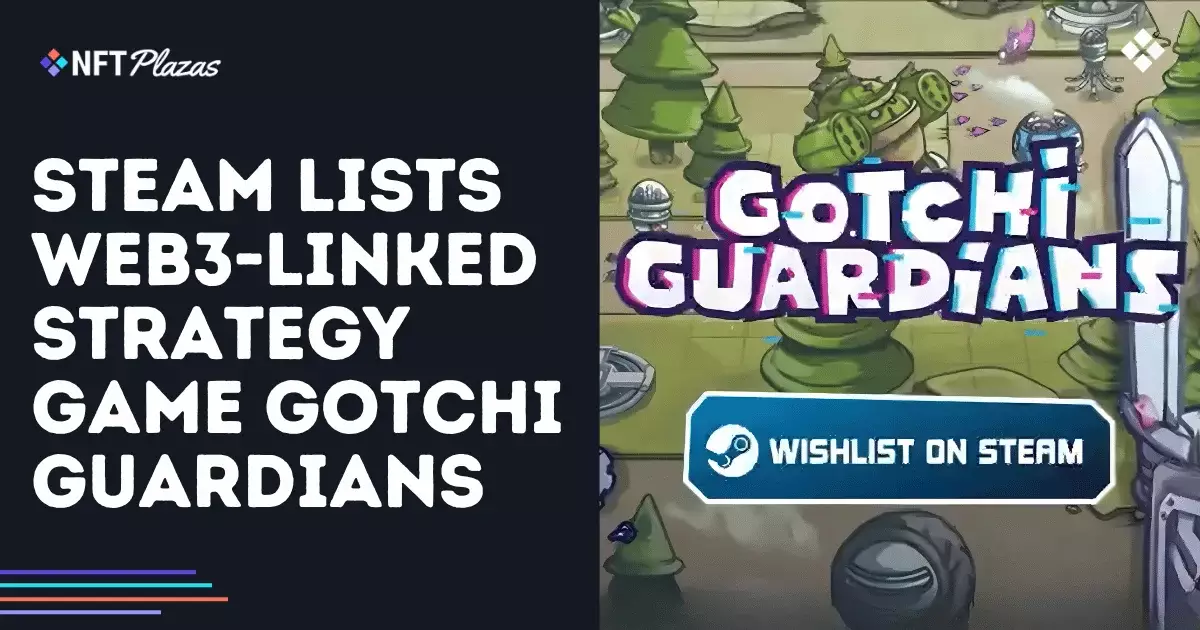As the digital landscape evolves, the integration of blockchain technology into mainstream entertainment remains a contentious frontier. The recent launch of Gotchi Guardians on Steam exemplifies this ongoing experiment with blockchain’s role within the gaming industry. While developers tout blockchain elements as future-proofing and added-value features, skepticism persists about their genuine impact on gameplay and player engagement. The core issue isn’t merely whether NFTs and crypto payments are included in these titles, but whether they are necessary or beneficial for the average gamer. More often than not, blockchain appears to be a superficial veneer, masking outdated mechanics or shallow content designed to capitalize on speculative trends rather than genuine innovation.
Much of the hype surrounding blockchain games hinges on the allure of *ownership* — the promise that players can truly possess their digital assets. Yet, this so-called ownership is often illusory. In practice, owning a cosmetic NFT skin or spending $GHST does little if these assets do not meaningfully influence gameplay or confer tangible benefits. The claims that blockchain elements are optional, and do not interfere with game balance, further raise questions about their authenticity and intent. Are these features genuine enhancements or corporate gimmicks designed to lure collectors and speculators into a false sense of participation? The truth is, widespread adoption of blockchain-based items risks commodifying gaming experiences, turning players into mere consumers of digital assets rather than engaged participants.
Misplaced Trust in Digital Scarcity and Speculation
The connection between blockchain, NFTs, and the gaming industry is rooted in the seductive idea of scarcity and value. Developers push the narrative that players can trade, sell, or showcase unique assets, creating a virtual economy. But is this truly sustainable, or just a bubble fueled by hype and inflated expectations? Titles like Gotchi Guardians serve as a testing ground for this concept, yet their long-term viability remains highly uncertain. The gaming community has demonstrated skepticism toward NFT integration, viewing it as an attempt to privatize virtual worlds and commodify creativity. Meanwhile, the volatility of crypto markets underscores the speculative nature of these assets, which often depend on external economic forces rather than intrinsic game quality.
Moreover, the claim that blockchain elements are separate from gameplay mechanics appears misleading. In reality, the presence of optional NFT skins or crypto payments subtly influences how titles are marketed and perceived. It creates a dichotomy where players are encouraged to see their digital possessions as investments, rather than just entertainment. This shift risks undermining the core purpose of gaming—a pursuit for fun, challenge, and community—by turning it into an arena for profit and speculation.
The Future of Gaming: Practicality Over Promises
Looking ahead, the question remains: will blockchain fundamentally enhance the gaming experience or simply serve as a vehicle for monetization? Titles like Gotchi Guardians demonstrate a cautious approach, including blockchain features without allowing them to disrupt core gameplay. The development team’s outlook, including long-term plans for content expansion, indicates a strategy aimed at blending traditional gaming with blockchain perks as optional layers, not necessities.
However, this approach might prove insufficient to sway skeptical gamers or investors. True innovation demands more than cosmetic NFTs or in-game currency options; it requires meaningful integration that enriches gameplay and fosters genuine community. Until blockchain technology can deliver on its promises of true digital ownership, seamless trading, and user empowerment—without succumbing to hype or speculative bubbles—its role in gaming should be viewed critically.
In the end, the industry faces a pivotal choice. Continue down the path of superficial branding and monetization under the guise of innovation, or prioritize fundamental improvements that enhance player experience. As things stand, the current wave of blockchain gaming appears to be more of a fad than a revolution, with real potential only if core principles—trust, practicality, and entertainment—are restored to the forefront of development.


Leave a Reply